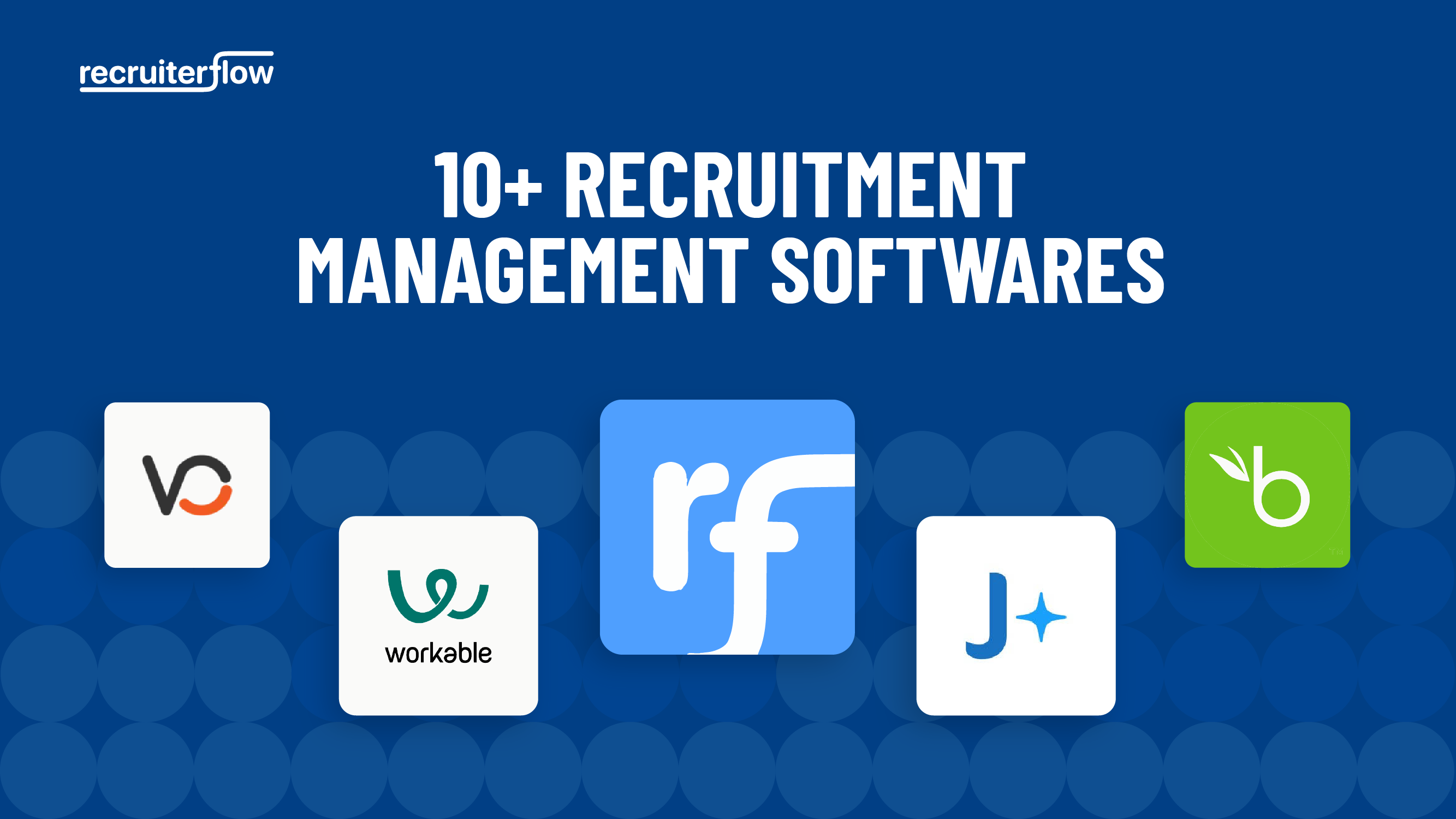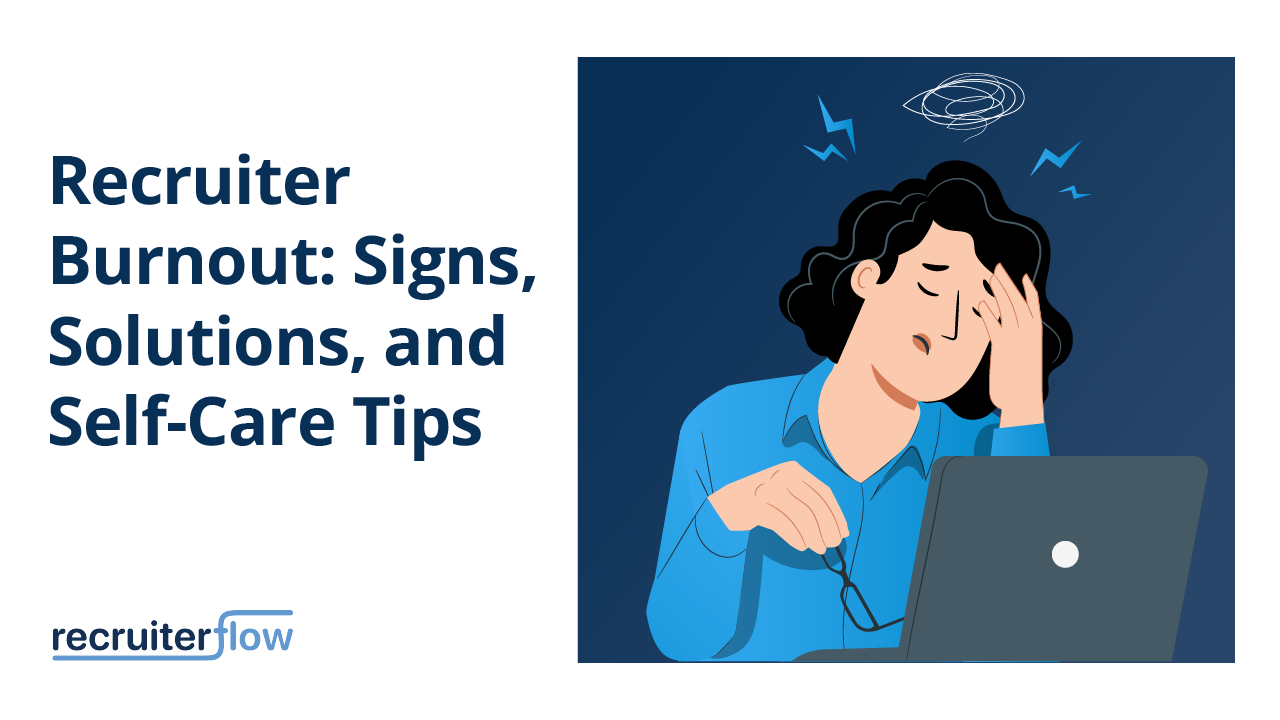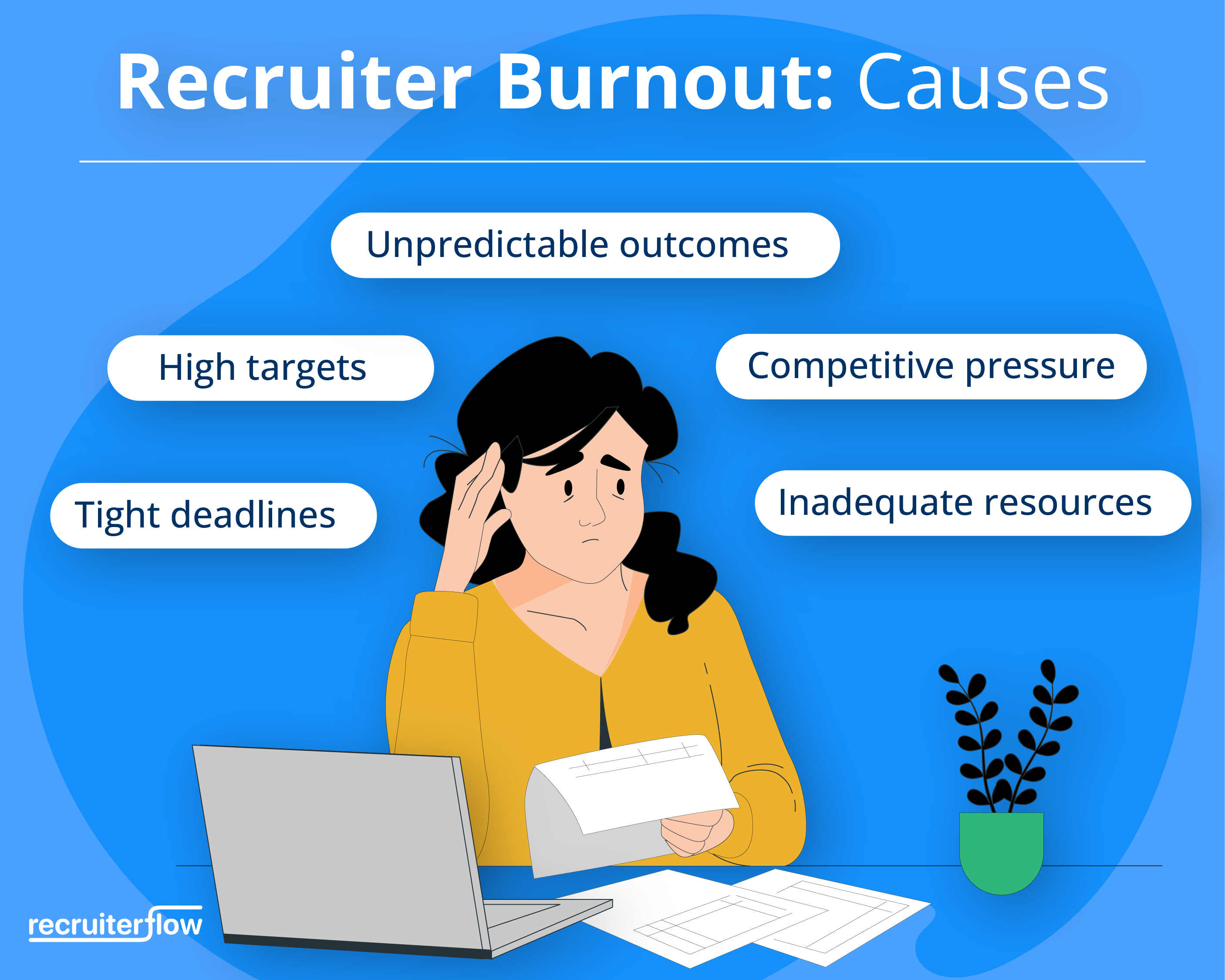
Recruiter Burnout: Signs, Solutions, and Self-Care Tips

Recruiter Burnout is real! Being a recruiter is not a easy task. It requires time investment. One has to constantly juggle between tasks like managing applicants and filling out numerous open positions. There is always a ongoing pressure to meet tight deadlines and quotas. This leads to recruiter burnout.
According to the 2023 Recruiter Nation report, 53% of recruiters agreed to face burnout. Challenges like scarcity of qualified candidates (45%), intense employer competition (35%), escalating open roles (34%), depleting hiring resources (33%), a deficiency in AI recruiting tech (30%), and a surge in employee exits (30%) were cited as the prime reason behind burnout.
Below are some tips for recruiters to manage their mental health and avoid burnout.
Recruiter Burnout: What is it?
Recruiter burnout is physical and emotional fatigue that affects recruiters due to work pressure. The symptoms of recruiter burnout are far more serious then normal day to day fatigue. If left untreated it can have an impact on your well-being and performance. This in turn can lead to decrease in productivity and strained relationships both personally and professionally.
According to Findem, 43% of recruiters reported that their burnout was attributed to handling manual and repeatable tasks.
Recruiter Burnout: Causes

Recruitment profession is not a cake walk. It comes with its own set of unique challenges that can significantly impact mental health.
Here are the key challenges that result in recruiter burnout:
Tight deadlines
Recruiters often work under strict time constraints. They are always in a rush to fill positions quickly while maintaining the quality of hire. This race against the clock can create intense pressure.
High targets
The need to meet or exceed recruitment quotas adds significant stress. Recruiters constantly strive to achieve ambitious goals, often in highly competitive environments.
Unpredictable outcomes
The unpredictability of candidate responses and hiring decisions can be a source of anxiety. Recruiters invest time and effort in candidates, but the outcome is not always within their control.
Competitive pressure
According to the Recruiter Nation Report, 44% of recruiters cited competitive pressure as a reason for stress. The recruitment industry is highly competitive. Staying ahead of the curve and differentiating oneself in the market can be challenging and stressful.
Early warning signs of recruiter burnout
Keeping a watch on burn out symptoms and overcoming them is crucial for the mental well being of recruiters.
Some common symptoms include:
- Persistent fatigue, not related to physical exertion, and not relieved by rest.
- Irritability or mood swings
- Finding it difficult to concentrate
- Sleep disturbances, either insomnia or excessive sleeping.
- Physical symptoms, such as headaches or stomach aches with no apparent cause.
The impact of these symptoms on professional performance can be significant. Recruiters may notice a decrease in their productivity, lower quality of work, and increased absenteeism, leading to difficulties in maintaining relationships with candidates and clients.
10 tips to avoid recruiter burnout
Daily mindfulness and stress management techniques
Incorporate mindfulness practices such as meditation or deep breathing into your daily routine to combat stress. These techniques promote mental clarity, emotional balance, and physical relaxation.
Set boundaries
Avoid working overtime or during off-hours to prevent burnout. Establish clear boundaries with colleagues and hiring managers about your schedule. Use off-time for personal activities and rest. Ensure that you disconnect from work-related tasks during that time.
Take breaks
Regular short breaks throughout the day are essential to reduce stress. These breaks can be as simple as a five-minute walk, stretching, or a quiet moment.
Connect with colleagues
Build relationships with colleagues. Engage in regular, meaningful conversations with your peers, share experiences, and offer help when needed. This connection provides emotional support and assists in sharing and solving everyday challenges.
Maintain work-life balance
Work-life balance is essential for mental well-being, allowing time for personal interests, family, and relaxation outside work commitments. This balance fosters productivity, reduces burnout, and enhances overall happiness.
Look after your physical health
Regular physical activity, a balanced diet, and sufficient sleep can positively impact your mental health.
Reports from the Tennessee Chiropractic Association reveal that 62% of adults who exercise or walk to cope with stress find this method extremely effective.
Celebrate small goals
Instead of being overwhelmed by big goals, focus on small achievements. Set hourly or daily goals. Celebrate the small wins that contribute to your progress. Embrace the process, even if results aren’t immediately visible. Success doesn’t happen overnight; it requires time and consistent effort.
Stay away from comparison
Comparing your success to others can bring anxiety, jealousy, or worry about your goals and plans. While finding areas for improvement is essential, fixating on others’ achievements may distract you from goals.
Avoid the comparison trap. Instead, focus on your unique strategy.
Create & organize a solid plan
Consistency is the key to success. Create and stick to a well-defined daily plan. This will help you save time, maximize productivity and achieve better outcomes.
Leverage automation
The relationship between workload and mental health is not always linear. Excessive workload can be a significant factor that leads to poor mental health of recruiters. By leveraging recruiting automation and advanced features in modern recruitment software, you can revolutionize your hiring process and reduce your workload.
Recruitment



Sagrika Jain